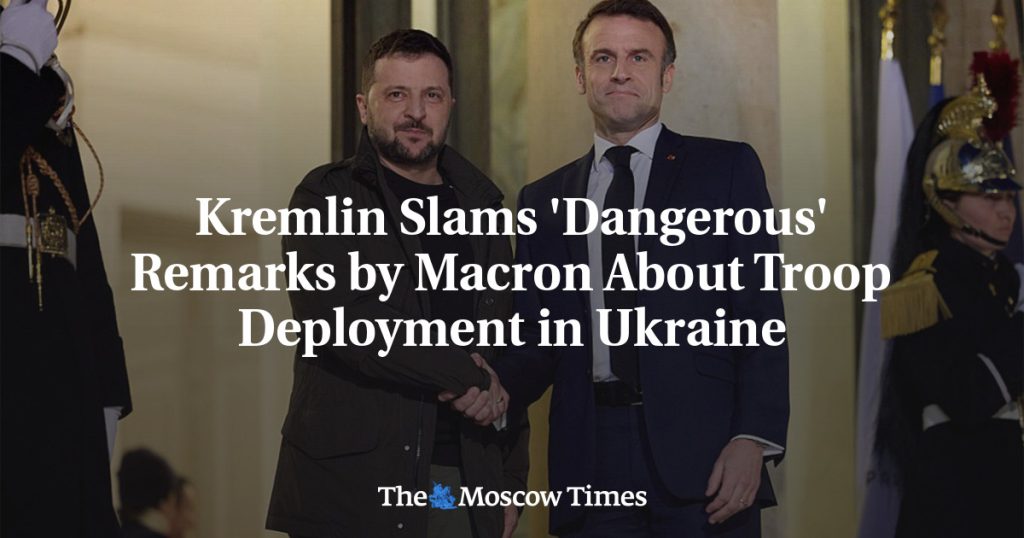The Kremlin criticized French President Emmanuel Macron’s comments in which he suggested that sending troops to Ukraine should not be ruled out. Macron expressed that if Russia broke through Ukrainian front lines and Kyiv requested it, the question of sending Western troops would be legitimate. Moscow has reacted angrily to suggestions of Western troop deployments, viewing it as evidence of NATO’s involvement in the conflict and its antagonistic stance towards Russia. Kremlin spokesman Dmitry Peskov deemed Macron’s statement as significant and dangerous, warning that constant talk of direct involvement on the ground in Ukraine is a perilous trend.
Several NATO countries, including the United States, rebuffed Macron’s earlier remarks in February regarding the possible deployment of troops to Ukraine. Peskov also criticized British Foreign Secretary David Cameron’s comments justifying Kyiv’s strikes on targets inside Russia as “dangerous” and “escalatory.” During a visit to Kyiv, Cameron stated that Ukraine has the right to strike back at Russia without limitations on how Ukrainian forces utilize weapons given by Britain. Ukraine has targeted energy sites in Russia, using drones laden with explosives to attack oil refineries and depots far beyond the front lines, citing these actions as responses to similar attacks by Moscow.
The Kremlin expressed concern about Macron and Cameron’s recent statements, identifying them as potentially threatening European security and the entire European security architecture. Peskov noted a dangerous tendency towards escalation in official statements, underscoring the increased risk in the current situation. Russia views the comments by Macron and Cameron as exacerbating tensions in the region and creating uncertainties. The Kremlin’s condemnation of the remarks highlights the perceived threat posed by Western discussions of troop deployments and strikes on Russian territory.
Macron’s assertion that sending troops to Ukraine could be a legitimate option in certain scenarios has fueled tensions between Russia and the West. Moscow firmly opposes any form of direct military involvement by NATO forces in the conflict, viewing it as an infringement on its sovereignty and a hostile act. With ongoing conflict in eastern Ukraine and escalating rhetoric from both sides, the situation remains precarious. The Kremlin’s reaction to Macron’s comments underscores the sensitivity of the issue and the potential for further escalation if Western nations consider deploying troops to Ukraine.
The back and forth between Macron, Cameron, and the Kremlin over potential Western military involvement in Ukraine highlights the complexities and sensitivities of the situation. While Kyiv justifies its strikes on Russian targets as self-defense actions, Moscow perceives them as unwarranted aggression. The involvement of NATO forces in the conflict would undoubtedly escalate tensions and provoke a strong response from Russia. The Kremlin’s backlash against Macron and Cameron’s statements indicates its staunch opposition to any form of Western intervention in the region, further complicating efforts to find a peaceful resolution to the conflict.
In light of these developments, it is crucial for all parties involved to exercise restraint and engage in diplomatic dialogue to prevent the situation from spiraling out of control. The international community must work towards finding a peaceful solution to the conflict in Ukraine and address the root causes of the ongoing hostilities. De-escalation efforts and confidence-building measures are essential to prevent further violence and instability in the region. With tensions running high and the risk of military confrontation looming, a swift and peaceful resolution to the conflict is imperative to avoid a larger crisis in Europe.


